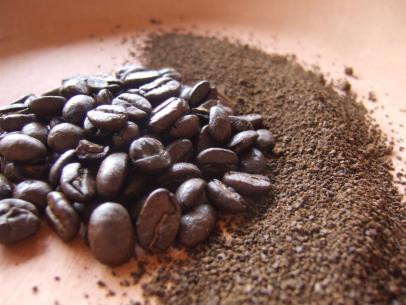Putting Coffee Grounds Down the Sink: Allowed or No? - Insights
Putting Coffee Grounds Down the Sink: Allowed or No? - Insights
Blog Article
They are making a number of great observations relating to Should You Put Coffee Grounds Down the Sink? in general in this article down below.

If you're an enthusiastic coffee drinker, you may be questioning the very best means to get rid of your coffee premises. While it might seem hassle-free to wash them down the sink, this method can cause several concerns for both your plumbing and the environment. In this post, we'll check out whether it's secure to put coffee grounds down the sink and talk about alternate disposal techniques to take into consideration.
Alternatives to Disposing of Coffee Grounds
Trash Disposal
If you do not have a composting arrangement, another alternative is to simply toss your coffee grounds in the garbage. Be sure to secure them in a compostable bag or container to prevent smells and leak. While this approach does not supply the same environmental advantages as composting, it's a risk-free and practical way to take care of coffee premises.
Composting
One environment-friendly alternative for throwing away coffee grounds is to compost them. Coffee premises are abundant in nitrogen, making them an exceptional enhancement to compost heap or bins. As they disintegrate, they include nutrients to the soil, boosting its fertility and appearance.
Threats of Putting Coffee Grounds Down the Sink
Plumbing Issues
Among the main interest in taking care of coffee premises down the sink is the danger of blocking your pipelines. Coffee grounds do not liquify in water and can build up with time, forming a thick sludge that can block drains and result in costly plumbing repair work.
Environmental Impact
Beyond the possible damages to your plumbing, putting coffee grounds down the sink can additionally harm the atmosphere. When washed into the sewage system, coffee premises can contribute to blockages in sewage system lines and therapy centers. Furthermore, the high concentration of organic matter in coffee grounds can deplete oxygen degrees in rivers, adversely impacting water life.
Tips for Proper Disposal
Routine Maintenance
Regardless of exactly how you pick to dispose of your coffee premises, it's necessary to preserve your plumbing regularly. Set up regular drainpipe cleanings to remove any type of accumulation and guarantee that your pipelines remain clear and free-flowing.
Use a Sink Strainer
To avoid coffee grounds from entering your sink's drainpipe to begin with, take into consideration utilizing a sink strainer. These inexpensive gadgets trap strong particles, consisting of coffee grounds, avoiding them from triggering blockages.
Verdict
While it may be alluring to wash coffee grounds down the sink for ease, doing so can have major effects for your plumbing and the environment. Rather, think about composting your coffee grounds or getting rid of them in the garbage. By adopting responsible disposal techniques, you can enjoy your coffee guilt-free while reducing your ecological footprint.
Coffee Grounds Down The Drain: Are They OK?
Can Coffee Grounds Go Down the Sink?
You may be thinking, “But I pour them down the sink drain every day and I’ve never had a clogged drain!” You see, coffee grounds come from coffee beans, which are virtually rock hard by the time they’re ground and brewed. You certainly wouldn’t want to grind up the pit from a peach, apricot, or nectarine that is about just as hard because they wouldn’t break down like other foods, and it’s the same with coffee beans!
If you usually grind coffee beans in the garbage disposal because it seems the cleanest and convenient, we don’t fault you for that. And anyone who has ever had to clean up the trash with spilled coffee grounds after a dog got into it would understand the rationale. Unfortunately, coffee grounds do not break down in water, so instead of grinding up and washing away as normal foods do in a garbage disposal, they clump together and as time goes by, the grounds can form a clump and pack the drain until it develops a clog.
What to Do With Coffee Grounds
So, what do you do with coffee grounds if you can't put them down the drain? You could of course just throw them in the garbage, but we encourage you to give these practical uses for them a try!
Since coffee grounds contain key minerals for plant growth, you can use them to fertilize your garden. Coffee grounds not only fertilize gardens because they are mineral-rich, but they are also great at absorbing contaminants in the soil, particularly heavy metals. Coffee grounds are said to attract worms, which help gardens flourish. You can use coffee grounds as fertilizer by sprinkling them around your plants. You can compost your coffee grounds and use them at a later time. Coffee grounds are great insect repellents when you place them in bowls or sprinkle them around the areas you want to repel insects. To remove fleas from your dog or cat, simply shampoo your pet then rub coffee grounds throughout their fur. Rinse them off and dry as usual. Like baking soda, used coffee grounds can eliminate odors. You can place them in a bowl in the fridge and let them do the work! Mix coffee grounds with coconut oil for a wonderful face or body scrub, or to reduce the appearance of cellulite. https://www.wintershomeservices.com/blog/2019/august/coffee-grounds-down-the-drain-are-they-ok-/

Do you enjoy more info about Can You Put Coffee Grounds in the Sink Garbage Disposal?? Post feedback further down. We would be pleased to hear your feelings about this blog post. We are looking forward to see you back again in the near future. Please take the opportunity to distribute this article if you appreciated it. Thanks a lot for your time. Please pay a visit to our website back soon.
This Post Report this page